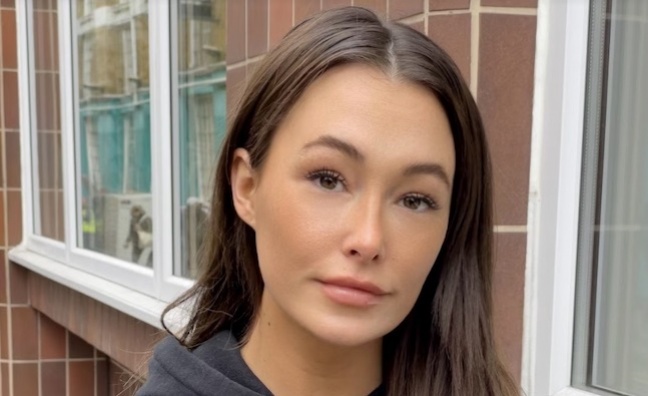In the past year, NFTs have become the major new tech growth sector for artists and the music industry.
In recent weeks, Warner Music and Universal Music Group have made big announcements, while artists ranging from The Wombats to Bob Dylan are embracing the technology. Even Dolly Parton is getting involved - she’s launching the ‘Dollyverse’ at SXSW in partnership with NFT studio Blockchain Creative Labs.
Rosie Copland-Mann is senior creative strategist at Amplify, a creative agency specialising in culture and experiences. Clients include Airbnb, Google and Netflix. Here, she looks at how NFTs are changing how fans engage with music…
There’s no way you’ve made it through the last few months without hearing the words metaverse or NFT. And if you have, you’ve probably heard about them through the narrative of “it’s the whole future” or “it’s a total hype”. Neither is true. When new tech emerges, people jump in prematurely and we see some exciting examples, and some that make us roll our eyes.
As someone who is constantly innovating creatively, it might be a bit of a surprise to a lot of people that Kanye West doesn’t want to make an NFT (“Do not ask me to do an NFT” he posted on Instagram in a handwritten note). To be honest, it’s not that confusing to me. The system and behaviours around them are mostly money driven (basically rich people, crypto millionaires, and celebrities buying and selling them and getting richer). These behaviours and the negative press around them have the ability to ruin their potential for everyone.
Currently NFTs are being treated as “ownership of art” but that’s the most basic utility; they can be much more than that - they are a contract. They have the ability to provide a new model that could provide financial stability, creative freedom, and community all in one go.
Ownership and access
Whilst the music industry continues adapting to ever-evolving tech, the cultural mentality around collecting music has changed immensely. Collecting and curating used to be far more physical. Now we’re in the on-demand economy with a huge shift towards disintermediation, where we can stream anything, any time. Interestingly, as ownership has diluted, access to musicians has only grown, through the internet and social media. Yet none of the access or ownership is really unique, personalised or special. It’s the same experience as everyone else.
The unique emotional connection that came along with personally owning a part of an artist’s legacy had become seemingly lost with the arrival of the digital age. NFTs provide a new marketplace to sell one-of-a-kind creations as they provide ownership and access, where fans could own an unreleased song, a piece of artwork, a physical nostalgic object or even one of Cardi B’s Instagram posts.
The industry needs change and innovation, and real change is always preceded by disruption
Rosie Copland-Mann
We’ve seen artists like Kings Of Leon and Steve Aoki create NFTs – but the utility of ownership is only the start. NFTs can act as keys that unlock mass experiences or more intimate ones, in both the physical and digital space. Imagine up-and-coming artists releasing an NFT that allows the buyer to access all gigs backstage,1:1 time with them, merch, unreleased music, etc.
And we've seen artists releasing more independently, through DAOs (decentralised autonomous organisations). DAOs could potentially become the next version of independent labels as these businesses already run as a collective, allowing artists and consumers to interact directly with one another without the need for third-party intermediaries, giving artists more autonomy and control in how their work is distributed. This could also result in profit being distributed more fairly. DAOs basically cut out the middleman.
Benefits of creating NFTs for artists:
Verified, one-of-a-kind assets
With NFTs, artists are able to create limited edition digital files of their artwork that each contain a signature in its code that can’t be replicated (although the asset can be replicated, the original certificate cannot).
Royalty attachment
Artists can attach a royalty arrangement to their NFT, meaning every time the NFT is resold, the artist gets a percentage.
Fans can invest in your career
Artists will become like stocks. That ‘I knew about this singer before everyone else’ - with NFTs, you can prove that. Through buying and trading pieces of an artist with a ‘sell-on’ clause, fans are directly investing in their career, and gaining from it too.
Cutting out the middleman
Technically artists have done this before as we saw with Radiohead and Prince, although both returned to major label distributors later on. But NFTs still provide artists more control over their art through selling on marketplaces such as Sturdy.Exchange, enabling them to sell directly to the public and cutting out the intermediary.
Creative democracy
Amidst Web3, we’ve seen a huge shift towards the creator economy and creative democratisation like Mighty Networks, Discord, Patreon, Roblox etc. So big brands rushing to NFTs to create tech for tech’s sake isn’t the answer, because while that’s happening, new wave creatives will be building exciting experiences and communities.
NFTs bring that 'collect and curate' behaviour back to music to the on-demand generation, but NFTs are only part of the picture (look at What Kanye just created with Donda 2 and his stem player). The key is to think about how we can create experiences that provide ownership and access, like elevating IRL moments, communities, experiences and memberships through tech.
The industry needs change and innovation, and real change is always preceded by disruption.
Click here for our Sturdy.Exchange Q&A.












